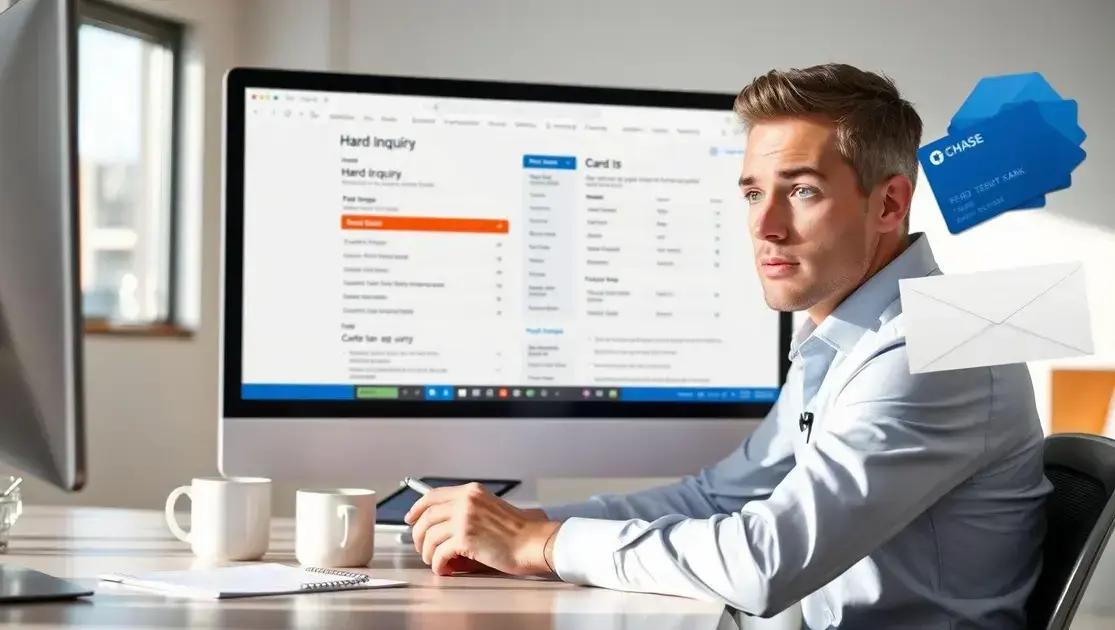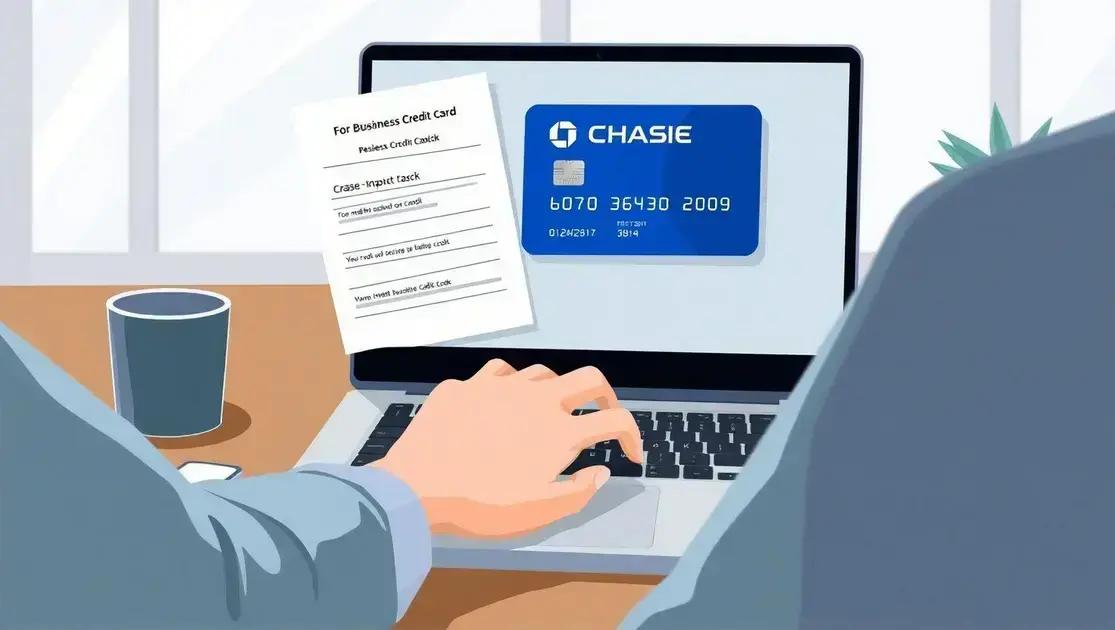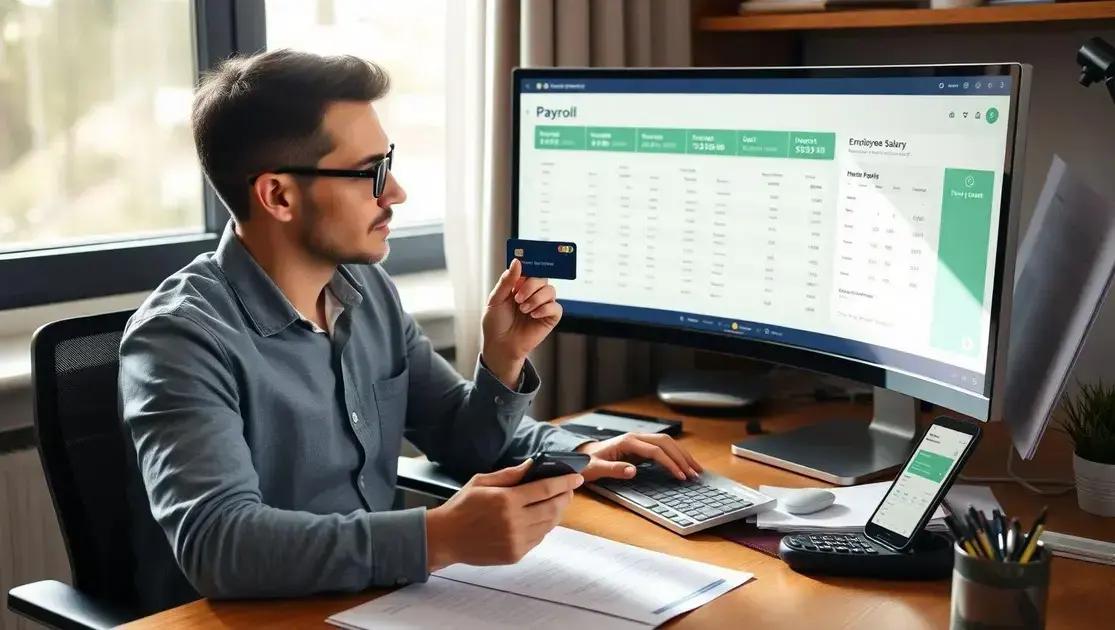The cost of credit card machines affects business profits by influencing initial investments, transaction fees, and operational efficiency, making it crucial for businesses to analyze both upfront and long-term expenses to enhance profitability.
So, you’re curious about how much does a credit card machine cost? You’re not alone! Many business owners want to know what to budget for this essential equipment, considering all the potential fees involved. Let’s dive into the details and unpack these costs together.
Understanding the basics of credit card machines
Credit card machines are essential tools for businesses that want to accept card payments. These machines allow customers to pay using credit or debit cards easily and securely.
Types of Credit Card Machines
There are several types of credit card machines available. Countertop machines are commonly used in retail settings, providing a stationary option for processing transactions. Mobile card readers are perfect for on-the-go businesses, connecting to smartphones or tablets to allow payments anywhere.
How Credit Card Machines Work
Credit card machines work by reading the card’s magnetic stripe or chip, which contains data about the cardholder’s account. Once the card is swiped or inserted, the machine communicates with the bank or payment processor to authorize the transaction.
Benefits of Using Credit Card Machines
Using a credit card machine can increase sales by providing customers with more payment options, making it convenient for them to complete their purchases. Additionally, accepting card payments enhances cash flow and reduces the risk of theft associated with handling cash.
Setting Up a Credit Card Machine
Setting up a credit card machine usually involves contacting a payment processor to obtain the necessary equipment and software. Most providers offer setup assistance and customer support during installation.
Common Concerns
Some business owners worry about transaction fees associated with card processing. It’s important to shop around for competitive rates as fees can vary by provider. Understanding these costs upfront can help you choose the right solution for your business.
Types of credit card machines available
When considering types of credit card machines, it’s essential to know the different options available to suit your business needs. Each type offers unique features and benefits that enhance payment processing.
Countertop Credit Card Machines
Countertop machines are widely used in retail environments. They are typically connected to a phone line or internet, allowing fast processing of transactions. These machines often come with a built-in printer for receipts.
Mobile Credit Card Readers
Mobile credit card readers are ideal for businesses that operate on the go. They connect to smartphones or tablets via Bluetooth or an audio jack. This allows vendors to accept payments anywhere, making them perfect for outdoor markets or food trucks.
Wireless Credit Card Machines
Wireless credit card machines function similarly to countertop machines but operate through a cellular network or Wi-Fi. This flexibility allows for transactions without worrying about a power source or internet connection.
Virtual Terminals
Virtual terminals are online interfaces that allow businesses to accept card payments through a computer or tablet. This is particularly useful for service-based businesses that take orders over the phone.
Self-Service Kiosks
Self-service kiosks allow customers to complete transactions independently, enhancing customer experience. These machines may be found in fast-food restaurants or airports, where users can pay without assistance from staff.
Integrated Point of Sale (POS) Systems
Integrated POS systems combine credit card processing with inventory and sales tracking. These systems streamline operations by providing comprehensive insights into sales trends and inventory management.
Initial costs of credit card machines

When evaluating the initial costs of credit card machines, several factors must be considered. Understanding these costs can help businesses budget effectively for their payment processing needs.
Purchase Price of the Machine
The first cost to consider is the purchase price of the credit card machine itself. Prices can range widely, from less than $100 for basic models to over $1,000 for advanced machines with additional features.
Leasing Options
Some businesses opt to lease credit card machines instead of buying outright. Leasing costs typically range from $30 to $100 per month, depending on the type of machine and the lease terms. This option allows businesses to spread out costs over time.
Setup Fees
Many payment processors charge a one-time setup fee when you register for their services, which can range from $0 to $500. It is important to review all potential fees before committing to a payment processor.
Software Costs
Some credit card machines require software to run effectively. This software may come bundled with the machine or need to be purchased separately. Annual fees for software support can range from about $100 to $500.
Additional Accessories
You might also need to consider the costs of accessories, such as a receipt printer or a stand. These items can add anywhere from $50 to $300, depending on the quality and type needed for your setup.
Training and Support
If the credit card machine requires special training for staff, you may face additional costs. Some vendors include training in their package, while others may charge fees for sessions to ensure everyone is comfortable using the equipment.
Monthly fees and service charges
Monthly fees and service charges are important aspects to consider when using a credit card machine. These ongoing costs can contribute significantly to the overall expenses of processing payments.
Typical Monthly Fees
Most credit card processors charge a monthly fee, which can vary widely based on the provider and the services included. These fees typically range from $10 to $100 and may cover account maintenance and access to customer support.
Service Charges
In addition to monthly fees, service charges can apply based on the number of transactions made during the month. This could be a flat fee per transaction or a percentage of the transaction amount, typically ranging from 1.5% to 3.5%.
Annual Fees
Some processors may also charge an annual fee, which is usually around $100 or more. This fee often covers additional services, such as software updates and technical support.
Equipment Leasing Fees
If you choose to lease your credit card machine, expect to pay monthly leasing fees. These typically range from $30 to $100, depending on the terms of the lease and the machine’s features.
Payment Gateway Fees
For online businesses, a payment gateway may be necessary to process transactions. These gateways often charge monthly fees ranging from $15 to $50, along with transaction fees for each sale processed.
Hidden Charges
Be aware of potential hidden charges that may arise, such as chargeback fees, which can cost anywhere from $15 to $100. Understanding all charges upfront is crucial to avoid surprises in your billing.
Transaction fees: What to expect
Transaction fees are a critical component of the overall cost of accepting credit card payments. Understanding what to expect can help businesses manage their expenses effectively.
Types of Transaction Fees
There are two primary types of transaction fees: percentage fees and flat fees. Percentage fees are calculated as a percentage of the transaction amount, while flat fees are a fixed amount charged per transaction, regardless of the sale total.
Percentage Fees
Most credit card processors charge a percentage fee that typically ranges from 1.5% to 3.5% per transaction. The percentage can vary based on factors such as the type of card used, the transaction volume, and the merchant’s risk level.
Flat Fees
In addition to percentage fees, many processors also charge a flat fee, which usually ranges from $0.10 to $0.30 per transaction. This fee is added on top of the percentage fee and is charged for every sale made.
Minimum Transaction Fees
Some providers impose a minimum transaction fee, ensuring they earn a certain amount on each sale, even on smaller transactions. This fee can be particularly relevant for businesses with lower average sale amounts.
Interchange Fees
Interchange fees are another critical aspect of transaction costs. These fees are paid to the card-issuing bank and vary by card type. They are generally included in the percentages charged by processors.
Understanding Your Contract
When signing a contract with a payment processor, it’s essential to review the terms regarding transaction fees. Understanding how these fees apply to your business can help you make informed choices and potentially save money in the long run.
Additional equipment requirements

When using a credit card machine, there may be additional equipment requirements to consider beyond the machine itself. Understanding these needs can ensure smooth operation and enhance the overall processing experience.
Receipt Printer
A receipt printer is often required for providing customers with a printed record of their transaction. This device can either be integrated with the credit card machine or purchased separately. Many printers are compact and can connect via USB or Bluetooth.
Cash Drawer
If your business also handles cash transactions, a cash drawer may be necessary. This equipment typically connects to the receipt printer, allowing it to open automatically when a sale is completed.
Bar Code Scanner
For businesses that sell products, a bar code scanner can enhance efficiency when processing sales. These scanners allow staff to quickly input product information into the payment system, speeding up the transaction process.
Networking Equipment
Depending on their setup, businesses might need additional networking equipment, such as routers or network switches, especially for systems that require a secure internet connection. This is essential for processing payments reliably and securely.
Mobile Hotspots
If using a mobile credit card reader in a location without strong Wi-Fi, a mobile hotspot can provide the necessary internet connection. This device allows you to process payments anywhere, making it ideal for events or outdoor sales.
Backup Power Solutions
To ensure uninterrupted service, consider having a backup power solution in place, such as an uninterruptible power supply (UPS). This is critical for maintaining operations during power outages.
Cost differences by payment processor
When choosing a credit card machine, it’s important to understand the cost differences by payment processor. Each processor has its own pricing structure, affecting the overall cost of accepting payments.
Percentage Rates
Different payment processors may charge varying percentage rates for transactions. For instance, some might charge as low as 1.5%, while others may go as high as 3.5% per transaction. These rates can depend on factors like the type of card used and the merchant’s transaction volume.
Monthly Fees
Monthly fees can also differ significantly across payment processors. Some processors charge a flat monthly fee of around $10 to $50. Others may charge no monthly fee but add a higher transaction fee.
Setup Fees
Some payment processors require a one-time setup fee when you sign up. This fee can range from $0 to several hundred dollars. It’s essential to clarify these costs upfront to avoid surprises.
Contract Terms
Many processors require long-term contracts, which can involve cancellation fees. These fees can vary by provider and may deter businesses from switching processors later due to associated costs.
Additional Services
Some payment processors offer additional services, like fraud protection or analytics tools. These services can come at an extra cost, influencing the overall expense further. Weighing these options against your business needs is crucial.
In-Person vs. Online Fees
Cost differences may also arise between transactions processed in-person and online. Online processing fees can sometimes be slightly higher than those for in-person transactions due to the increased risk of fraud.
Hidden costs you should know
When exploring the costs associated with credit card machines, it is crucial to be aware of hidden costs that can impact your budget.
Chargeback Fees
Chargeback fees occur when a customer disputes a charge and the transaction is reversed. This fee can range from $15 to $100 per chargeback, depending on the payment processor. Frequent chargebacks can significantly affect your business costs.
PCI Compliance Fees
To ensure secure transactions, businesses must comply with the Payment Card Industry Data Security Standard (PCI DSS). Some processors may charge annual PCI compliance fees, which can be around $100 or more if compliance guidelines are not followed.
Gateway Fees
If you are processing payments online, you may face extra gateway fees. These fees are typically charged for providing a secure connection to process transactions, ranging from $15 to $50 per month.
Early Termination Fees
Many payment processors require contracts with specific terms. If you terminate the contract before it expires, you could incur an early termination fee that can reach hundreds of dollars.
Equipment Upgrade Fees
As technology evolves, you might need to upgrade your credit card machine. Some providers charge fees for equipment upgrades or replacements that are not covered under warranty.
Monthly Minimum Fees
Some processors impose a monthly minimum fee, which means you must process a minimum amount each month. If you fail to meet this threshold, you may still be charged a fee, typically around $10 to $25.
Comparing costs based on business size

When it comes to comparing costs based on business size, it’s essential to recognize that different businesses have unique needs and budgets, which can influence the overall expenses associated with credit card machines.
Small Businesses
Small businesses often operate on tight budgets. They may look for affordable credit card processing options that offer low monthly fees and competitive transaction rates. Typically, small businesses benefit from simple, cost-effective machines or mobile card readers, which are easy to set up and use.
Medium-Sized Businesses
Medium-sized businesses usually have higher transaction volumes and may benefit from pricing structures that offer lower transaction fees based on volume. These businesses might invest in more advanced POS systems that integrate inventory management and analytics tools, which can incur additional costs.
Large Enterprises
Large enterprises often process significant numbers of transactions, making negotiating rates with payment processors crucial. These businesses are likely to face higher upfront costs for robust equipment and features, but they can achieve cost savings through lower percentage fees per transaction due to their volume.
Factors Affecting Costs
Several factors affect the costs associated with credit card processing across different business sizes, including the volume of sales, the types of payment methods accepted, and the operational complexities of the business. Understanding these factors can help business owners make informed decisions regarding which payment solutions work best for them.
Investment in Technology
As businesses grow, their requirements for processing solutions evolve. Investing in technology that scales with the business size can be beneficial. For example, a small business may start with a mobile card reader and upgrade to a full POS system as it expands.
Long-term costs vs. short-term savings
When evaluating credit card processing options, it’s important to understand the difference between long-term costs and short-term savings. This distinction can significantly impact your business’s financial planning.
Understanding Long-Term Costs
Long-term costs include all expenses associated with credit card processing over time. This can encompass equipment maintenance, software updates, and ongoing fees from payment processors. For instance, if a business invests in a high-cost credit card machine, they might save on transaction fees long-term due to better rates.
Short-Term Savings
Short-term savings can come from lower initial costs, such as choosing a budget-friendly payment processor or opting for cheaper equipment. While this option may seem appealing, it could lead to higher fees and lower quality service in the long run.
Cost Analysis
When making a decision, conducting a careful cost analysis is essential. Calculate the total costs over multiple years versus initial expenses. For example, a lower monthly fee might result in higher transaction fees, which could negate any short-term savings.
Future-Proofing Your Investment
Investing in quality equipment and reliable service can lead to stability and predictability in costs over time. This means fewer unexpected expenses and better performance, which is crucial for growing businesses.
Evaluating Total Cost of Ownership
Considering total cost of ownership is key. This includes not just the purchase price but ongoing costs like support and updates. A more expensive option upfront might offer greater long-term savings due to efficiency and lower transaction fees.
Financing options for credit card machines
When considering financing options for credit card machines, businesses have several pathways to acquire the necessary equipment without straining their cash flow.
Leasing Options
Leasing a credit card machine is a popular choice for many businesses. With leasing, you pay a monthly fee for the use of the equipment rather than buying it outright. This allows for lower upfront costs and options for upgrading to newer models more frequently. Leases can range from $30 to $100 per month.
Payment Plans
Many providers offer payment plans that allow businesses to purchase credit card machines through affordable monthly installments. This way, instead of paying a lump sum upfront, you can spread the cost over a specified period, typically ranging from 6 to 24 months.
Financing Through a Bank
Some businesses opt to finance equipment through loans from banks or credit unions. These loans can come with varying terms and interest rates. Working with a financial institution can help secure favorable terms, dependent on your business credit rating.
Vendor Financing
Some credit card machine vendors provide in-house financing options. This can be beneficial as the vendor may offer competitive rates or flexible terms tailored to meet the needs of small businesses.
Government Grants and Programs
In certain regions, small businesses may qualify for grants or government programs that aim to support entrepreneurship. This funding can help cover the costs of necessary equipment, including credit card machines.
Considerations for Financing
When exploring financing options, it’s critical to consider the long-term implications. Look at total costs, including interest rates and fees, to determine what financing option will be the most cost-effective.
The impact of machine cost on your business profits

The impact of machine cost on your business profits is substantial and multifaceted. The price of credit card machines can influence your overall operational expenses and, ultimately, your profitability.
Initial Investment
The initial investment in a credit card machine can vary widely. A more expensive machine may offer advanced features that can enhance the customer experience and streamline the payment process. This can lead to increased sales and improved cash flow over time. Conversely, a lower-cost machine might save money upfront but could lack important functionalities that drive sales.
Transaction Fees
The costs associated with processing payments, such as transaction fees, can significantly affect your profit margins. Machines that come with higher fees may cut into your earnings, making it essential to evaluate the total cost of ownership when selecting a credit card machine.
Operational Efficiency
Investing in a high-quality credit card machine can contribute to operational efficiency. Machines that process payments quickly and securely can reduce wait times, leading to better customer satisfaction and potentially increased repeat business. This efficiency can translate into higher profits.
Maintenance and Support
Higher-end machines may come with better support and maintenance options, reducing the risk of downtime that could affect sales. Understanding the maintenance costs and support offered by the provider can help ensure that your machine contributes positively to your bottom line.
Long-Term Financial Impact
When choosing a credit card machine, consider its long-term financial impact. While a lower-cost option might seem appealing today, it may lead to higher costs over time due to fees, inefficiencies, or lack of features that grow with your business.
Understanding the costs associated with credit card machines
In summary, the costs of credit card machines involve various factors, including initial investments, monthly fees, and additional expenses like transaction rates and maintenance.
By evaluating all these costs, businesses can make informed decisions that better suit their financial goals. Whether opting for leasing, purchasing outright, or considering financing options, understanding these expenses is crucial.
Ultimately, choosing the right credit card machine not only impacts daily operations but can also significantly affect profit margins over time. Taking the time to analyze the costs will pave the way for a smoother payment process, increased sales, and long-term success.
FAQ – Frequently Asked Questions about Credit Card Machines and Costs
What factors influence the cost of credit card machines?
The cost of credit card machines can be influenced by factors such as the type of machine, transaction fees, monthly service fees, and maintenance costs.
Is it better to lease or buy a credit card machine?
Leasing offers lower upfront costs and flexibility for upgrading, while buying can be more cost-effective long-term if the machine is used frequently.
What are common hidden costs associated with credit card processing?
Common hidden costs include chargeback fees, PCI compliance fees, and transaction fees that can impact your overall expenses.
How can I reduce transaction fees?
You can reduce transaction fees by comparing different payment processors, negotiating better rates, and choosing a processor that fits your business model.
Can financing options help my business acquire a credit card machine?
Yes, financing options such as leasing, payment plans, or vendor financing can help businesses acquire credit card machines without significant initial costs.
What is the long-term financial impact of investing in a quality credit card machine?
Investing in a quality credit card machine can lead to increased efficiency, lower transaction fees, and improved customer satisfaction, ultimately boosting profitability over time.







